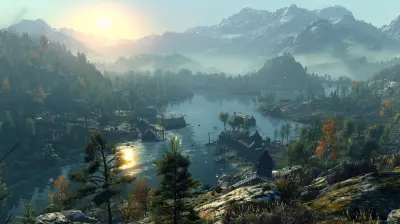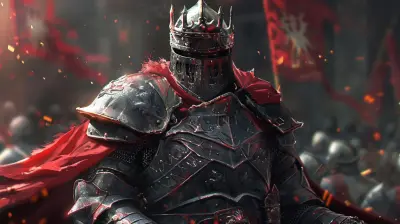Building Emotional Connection in VR: Friendships and Rivalries
10 October 2025
Virtual reality isn't just tech. It's magic stitched into code. It's a doorway not only into fantasy worlds but into real emotions. And at the heart of every epic quest, neon-lit battle, or deep-space voyage—there's always a feeling. A bond. A rivalry. A laugh. Maybe even a tear.
Welcome to the new frontier where pixels grow personalities, and avatars form soul-deep connections. Let’s unpack how VR isn’t just changing how we play—it’s transforming how we feel.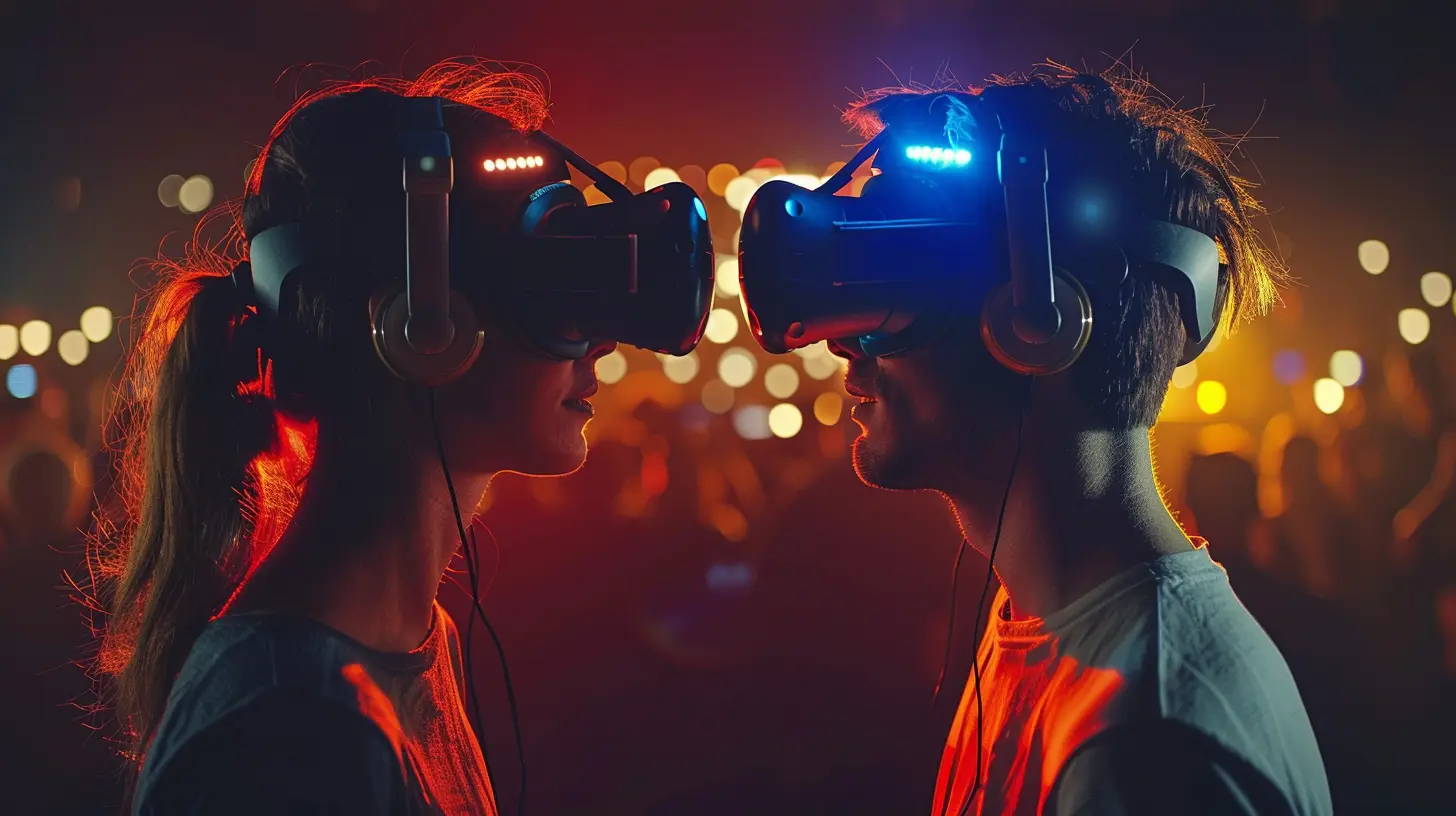
The Pulse of Presence – Why VR Feels So Real
Ever had a dream so vivid you felt like you truly lived it? That’s VR in a nutshell. Unlike flat-screen gaming, VR wraps itself around you. It doesn’t ask you to look at the world—it asks you to step inside.With spatial audio, haptic feedback, and full-body tracking, VR triggers the brain into believing. Your heart races when a rival stares you down. Your cheeks flush when a friend saves you in the nick of time. These aren’t just game mechanics—they're emotional hooks.
Why? Because your brain can’t always tell the difference between what's real and what’s virtually felt. And that’s where the magic begins.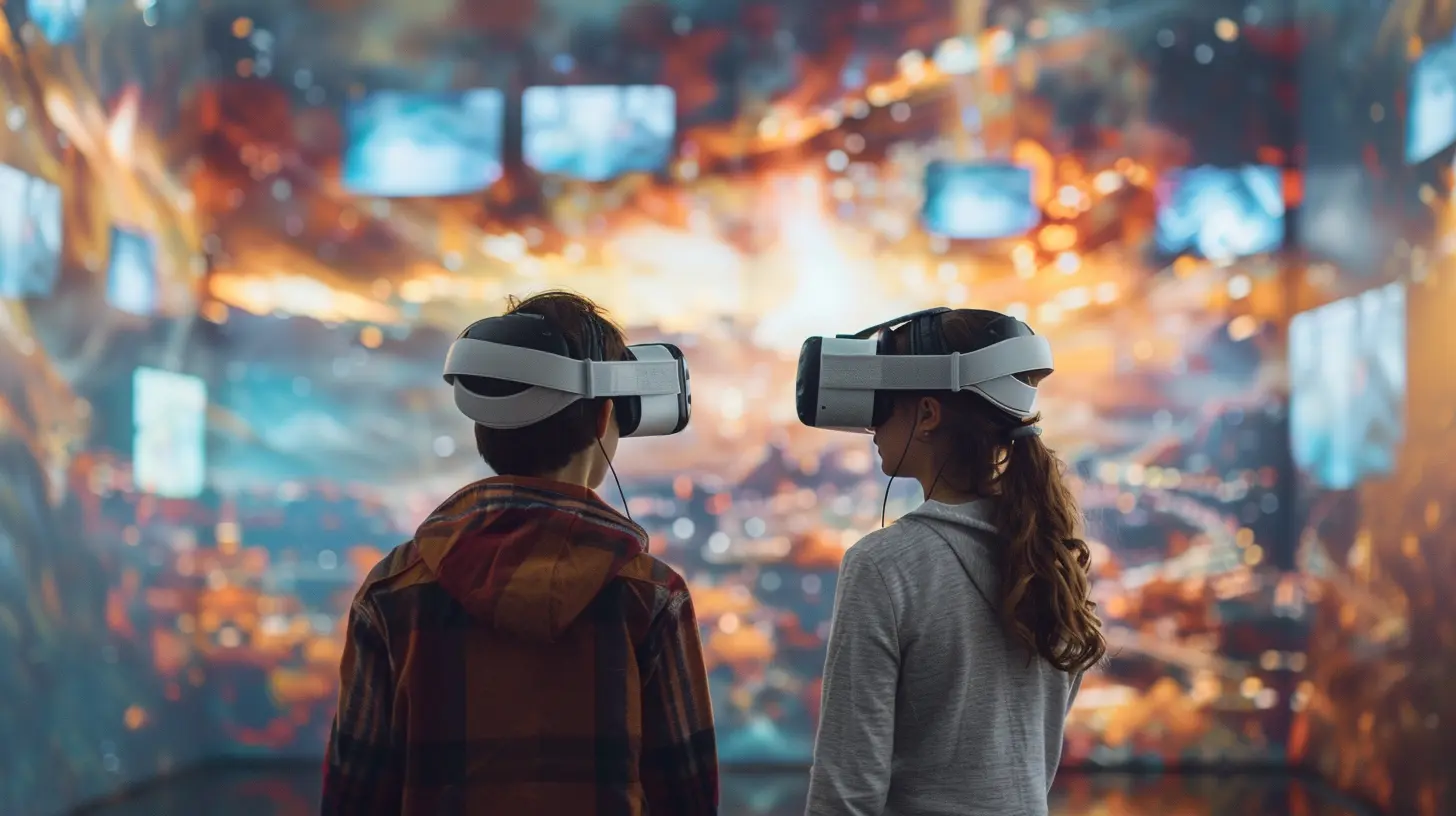
Becoming Someone—and Seeing Others
In VR, you don't just pick a character—you become one. That sense of embodiment changes the game, literally and emotionally.Picture this: you’re a hulking orc warrior, and beside you is a rogue elf who’s got your back in every dungeon dive. That elf might be a stranger in real life, someone in a different city, even continent—but in that moment, they’re your partner, your friend, maybe even your rival.
The barriers of identity blur. You’re not seeing gender, race, or age—you’re seeing their actions, their voice, their loyalty. That’s intimate. That’s emotional.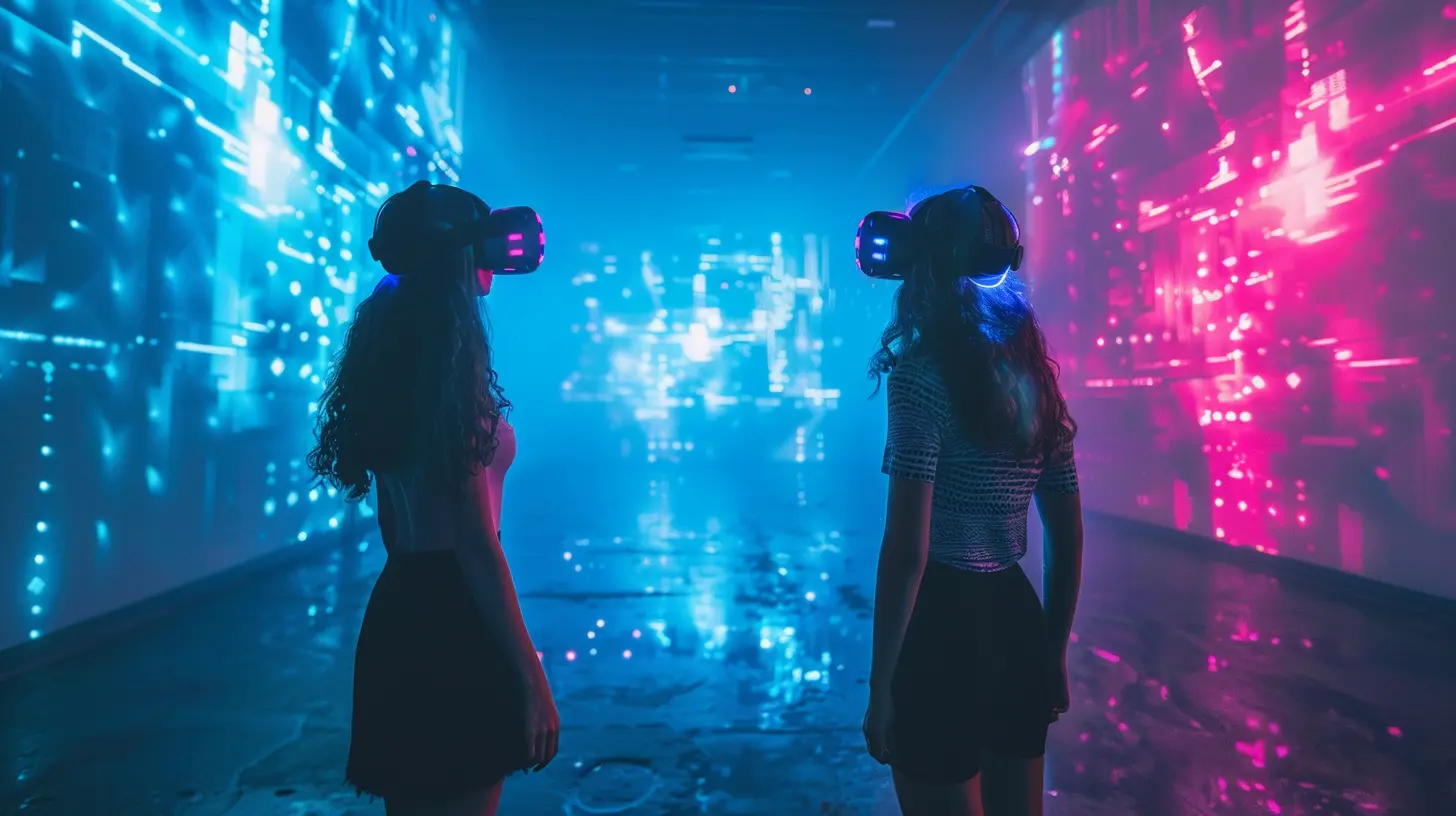
The Rise of Digital Friendships
Some of the strongest friendships today are formed in virtual spaces. And VR cranks that intimacy up to 11.Shared Experiences Forge Bonds
In VR, you're not just chatting—you’re dancing in zero-G clubs, solving mysteries, building forts, dodging lasers, and singing karaoke. It’s like a hundred memories pressed into one night. These shared experiences build trust fast. It's social glue powered by pixels.Body Language Matters
Think about how much you communicate just by shrugging or nodding. In VR, body language comes back into play. Eye contact, gestures, posture—it all makes your presence feel real. That nuance creates empathy. You feel your friend's frustration, joy, or mischief.Safe Spaces for Social Risk
Struggling with social anxiety? VR can be a safe place to test those interpersonal waters. The headset feels like armor—protecting you while allowing just enough vulnerability to connect. You’re not forced to reveal everything about yourself all at once—you reveal through action and shared play.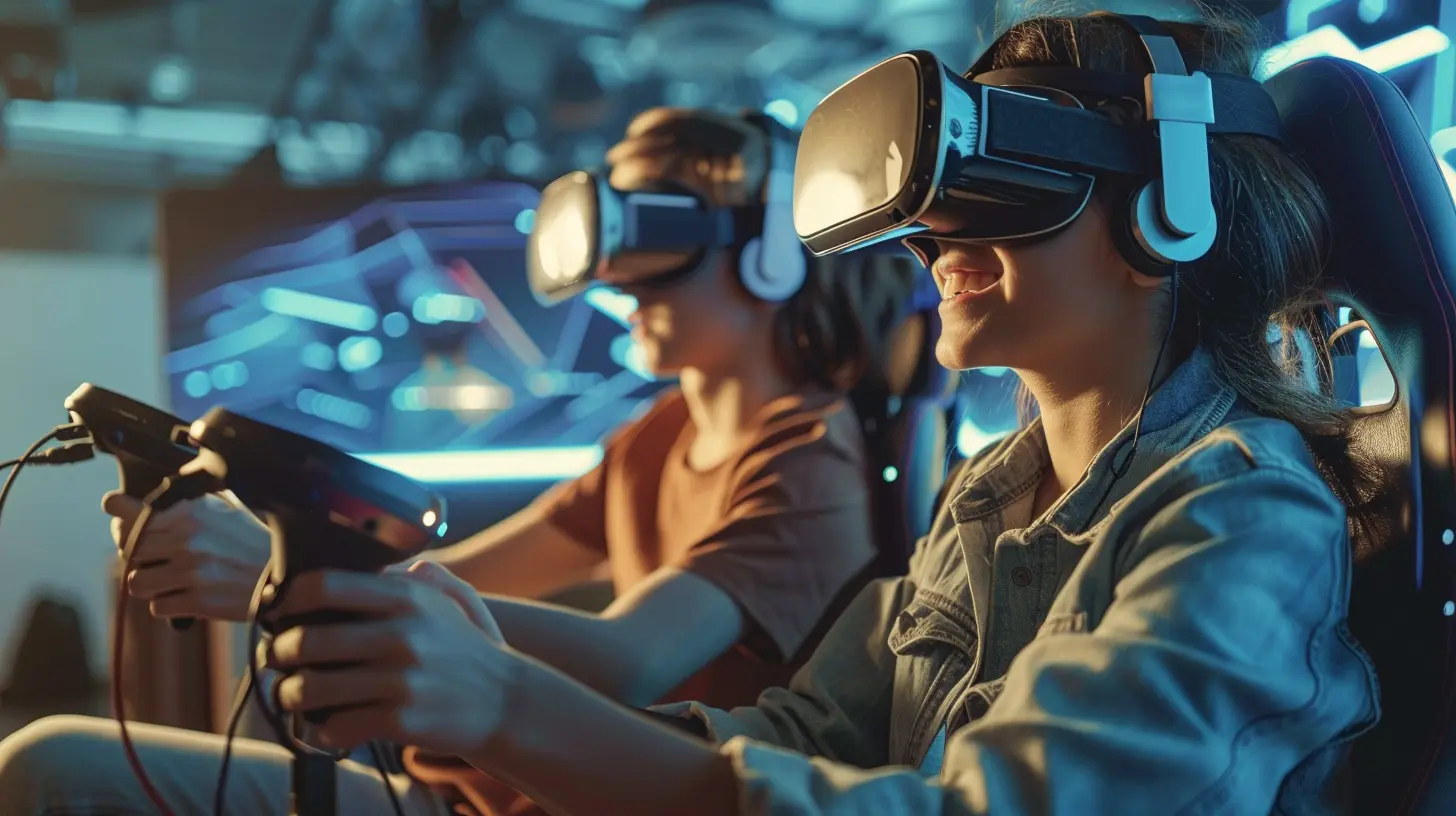
Rivalries: The Spark That Fuels the Flame
Where there’s friendship, rivalry isn't far behind. And let’s be real—what’s a good story without a worthy opponent?Healthy Competition, Real Emotions
Nothing gets the blood pumping like a showdown. Maybe it's a sharp-shooting sniper in Onward who always has your number. Or a trash-talking swordsman in Blade and Sorcery. They push you, challenge you, frustrate you… and weirdly, make you better.That competitive edge creates intense interactions. You study their moves. You anticipate their next step. It’s almost intimate in its own combative way. Think of Holmes and Moriarty. Naruto and Sasuke. That tension drives growth, both in-game and emotionally.
From Rivals to Friends
Many VR rivalries bloom into friendships. There's mutual respect in battle. When someone bests you fair and square, it’s hard not to admire them. And admiration? That’s the first brick in the house of connection.Isn’t that wild? You can go from enemies to co-op partners in a single emotional arc. Just as in real life, conflict handled well can deepen relationships.
Moments That Hit Different in VR
What makes VR so emotionally powerful compared to traditional gaming? It’s all about how immersive and personal it feels.Let’s break down some unforgettable VR moments:
- A friend picks you up after you fall – Literally. They reach out their virtual hand.
- You hear laughter across the room – Not a chat bubble. Real, spatial laughter.
- You say goodbye at the end of a long session – And it feels like leaving a party too early.
- You lock eyes with a rival – And there's tension. Real, chest-thumping tension.
Those little interactions create unforgettable memories. They’re bookmarks in your emotional library. They matter.
Avatars and Authenticity
You’d think hiding behind an avatar would make things less real—but it’s often the exact opposite.Why? Because avatars allow freedom. Freedom from judgment. Freedom to express who you are underneath the surface. Sometimes people are more themselves in VR than in real life.
We see it time and time again—users forming communities based on shared creativity, humor, and compassion. They’re not just bonding over games. They’re bonding over personality and presence.
The Dark Side of Connection
Let’s not pretend it’s all sunshine and high-fives. Emotional connection can also mean emotional fallout.Toxicity Has a New Dimension
When VR gets toxic, it feels even more personal. You're not just reading trolling texts. You're hearing cruel words in your ear. Maybe even seeing aggressive gestures. That can sting more than you’d expect.But here’s the upside: the same tools that build emotional bonds can also be used to create safer, more respectful environments. Devs are constantly working on moderation systems, block features, and community-driven tools to keep the emotional tone in check.
Emotional Overwhelm Is Real
Just like in real life, people can get exhausted. Emotional overstimulation is a thing. If you’re laughing one minute and arguing the next, it’s okay to log off. That headset needs breaks—so does your heart.Developers as Emotion Architects
Game devs? They're not just coders. They're emotion architects. They design the systems, feedback loops, and social environments that either promote connection or shut it down.Social Hubs and Proximity Voice Chat
Games like VRChat and Rec Room are practically built for connection. You can meet someone while painting a virtual masterpiece or while role-playing in a medieval village. These systems aren't accidental—they’re crafted with the intent to nurture connection.Emergent Gameplay
Some of the best emotional moments aren’t scripted. They’re emergent. Devs give you the tools, and you create the stories. That’s powerful. That’s human. That’s where VR shines.The Future of VR Friendships and Rivalries
We’re just getting started. VR is evolving. Soon, we may have facial expression tracking, wider emotional AI, even more immersive haptics. What does that mean for human connection?Here’s what’s likely coming:
- AI companions that actually feel like friends (or enemies)
- More nuanced emotional responses between players
- Shared VR experiences across gaming, education, therapy, and art
- Inventing new social norms unique to the virtual world
We’re not just headed for better graphics or faster processors—we’re heading toward deeper digital soulscapes.
Final Thoughts: It’s Not Just a Game
VR isn’t a gimmick. It’s not just eye candy for gamers. It’s a new language for human connection. Whether you’re forging friendships with people you might never meet outside the headset, or challenging rivals who push your limits, VR offers emotional depth that no other medium can quite match.So next time you're in a virtual world, take a second. Look at the friend beside you or the rival in front of you. Think beyond the pixels. There's a person behind that avatar. And you’re not just playing a game—you’re writing an emotional story, one interaction at a time.
Connection? Rivalry? Friendship? They're all just different flavors of the same thing—being seen, even in a world built from code.
all images in this post were generated using AI tools
Category:
Virtual RealityAuthor:

Leif Coleman
Discussion
rate this article
1 comments
Marni Wade
Who knew virtual reality could turn me from a lone wolf into a pack of digital puppies? Just remember, in VR, every friendship can be a rivalry... especially when we’re racing for that last loot drop!
October 10, 2025 at 3:57 PM

Leif Coleman
Absolutely! VR creates unique dynamics where friendships can evolve into playful rivalries, enhancing both connection and competition in thrilling ways.
